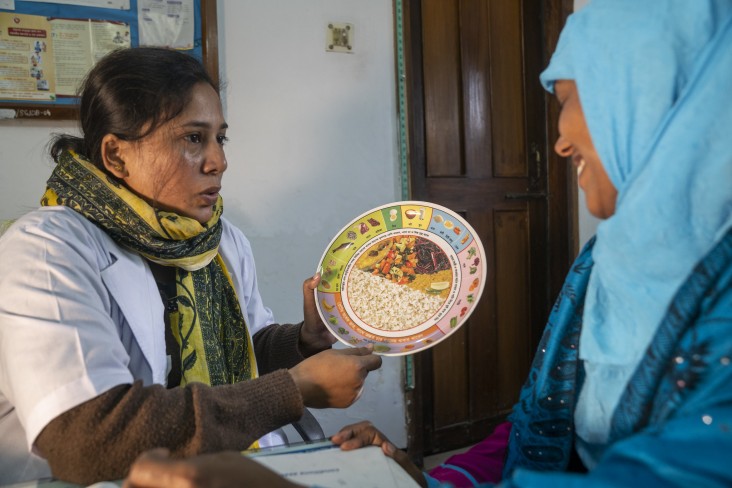Speeches Shim

For over a decade, the U.S. Agency for International Development (USAID) in Bangladesh has been making headlines for its novel approach to health. Much of its shining success has come through the Smiling Sun network of 134 clinics, run by a pro-poor, independent social business company, Surjer Hashi Network (SHN), which has made primary health services available to millions of Bangladeshis.
Supported by USAID, these clinics in rural and urban areas provide free healthcare for the ultra-poor and reduced-rate services for others. The clinics operate as full-time facilities that offer safe childbirth delivery, emergency obstetric care and other services. In addition, more than 8,000 satellite clinics and 7,000 community health workers provide basic services and refer clients to the full-time clinics for more care. Paramedics often work in communities where they live and connect with their patients on a personal level—a human touch—to ensure meaningful, quality health care.
It’s good news—and it’s getting even better. In 2018, USAID launched the Advancing Universal Health Coverage (AUHC) activity to transform a network of USAID-supported clinics managed by various non-governmental organizations into a unified, private social enterprise network for greater viability over the long haul. In 2019, AUHC helped transition and consolide clinic management within the new social enterprise and upgraded operating systems. It also developed and tested income-generating models to help ensure financial sustainability and reduce reliance on donor funding.
Through this network, USAID is helping Bangladesh’ realize its vision of universal health coverage by ensuring that poor communities have access to essential services. Specifically, the USAID-supported and independent social enterprise generates revenue to cover 40 percent of their costs, while for now, USAID covers the balance. This funding goes a long way. In 2019 alone, network health workers made 2.4 million antenatal care visits to needy women in mostly rural remote areas.
According to a recent World Health Organization estimate, $87 per capita spending is needed to achieve universal coverage. Current total health expenditure in Bangladesh is only $37 per capita, of which the Government of Bangladesh contributes about $9. With USAID’s contribution, the Smiling Sun Network is helping bring Bangladesh further down its road to self-reliance while improving the lives of Bangladeshis with affordable health care close to home.

Comment
Make a general inquiry or suggest an improvement.